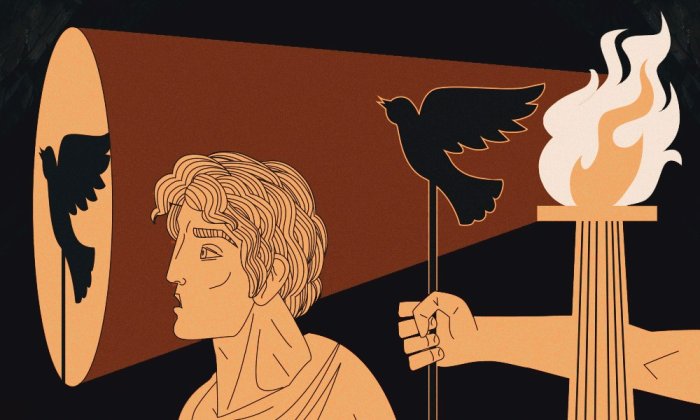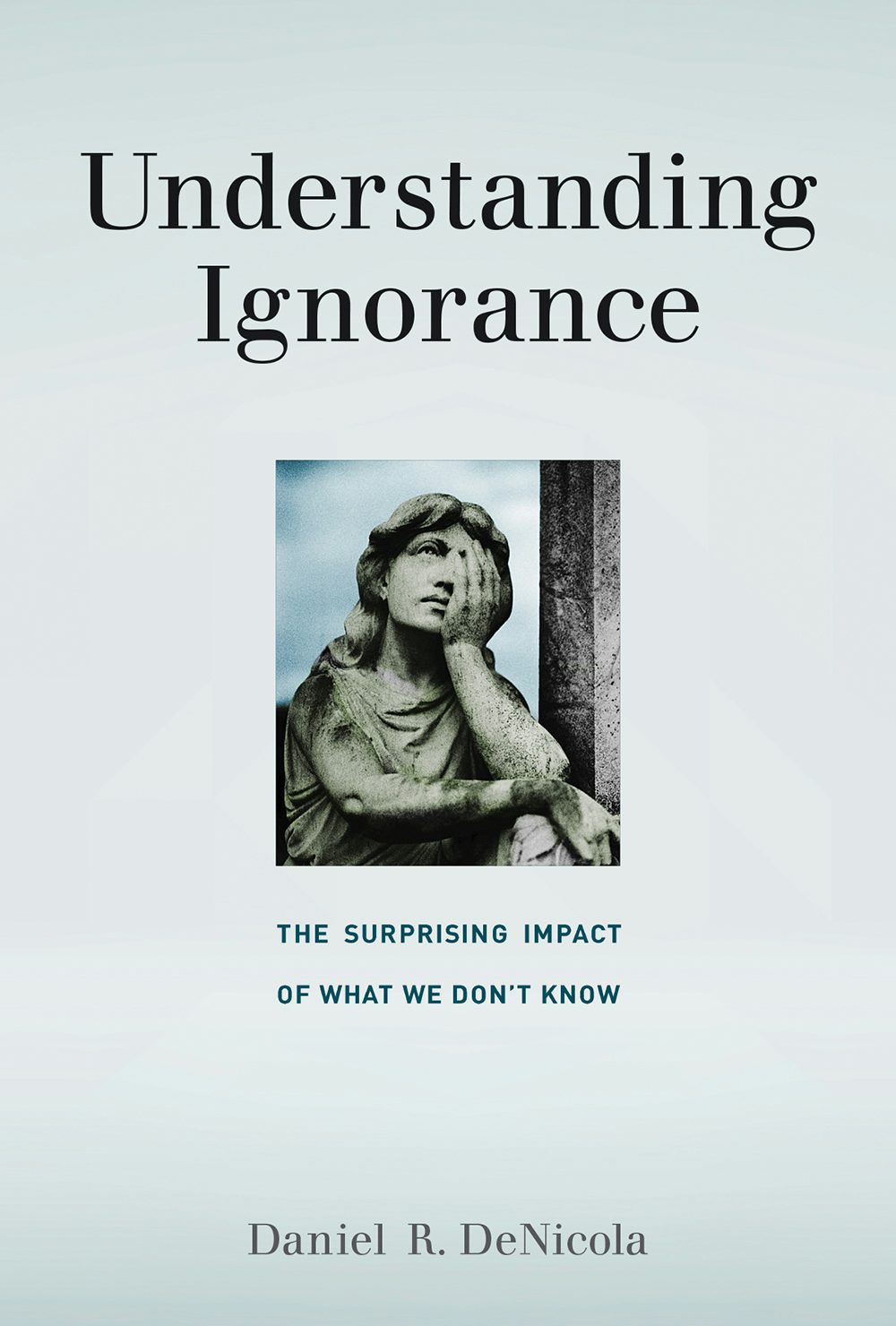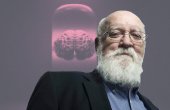Plato’s Cave and the Stubborn Persistence of Ignorance

The most memorable image of ignorance occurs in what is probably the most famous passage of all philosophy: Plato’s Allegory of the Cave in “The Republic.” Recall the scenario: human beings dwelling in the darkness of an underground cavern, bound at the legs and neck so that they cannot move, even to turn their heads. They have no other memory of life, since they have been imprisoned in this way since childhood. Before them, they see only moving shadows that are cast by objects unknown to them, illumined by a flickering fire that we are told lies somewhere behind them. They know nothing of this except the shadows and hear only echoes from the voices of their keepers, whom they have never seen. In such a benighted state, they pass their days.

This place of ignorance is not only a dark cave; it is a prison, a deprivation chamber. As we imagine this predicament, what we are likely to feel acutely is an epistemic claustrophobia, the absence of freedom in any meaningful sense, and the numbness and despair that would set in from such a deprived routine. Freedom is primordially the ability to move our body. Beyond being our basic capacity for meeting our needs, bodily movement, including change of place, leads us to new experiences, permits learning, and generates perspective. But confined in such profound ignorance, the world of experience is severely restricted. Plato regards such a plight as worse than imprisonment, worse than servitude, more like death: he says, quoting the “Odyssey,” “Better to be the humble servant of a poor master and to endure anything, than to live and believe as they do” — and the Homeric reference here is to the dead who dwell in Hades. As Plato expects, we feel deep sadness at the absence of any chance to understand anything, to achieve anything of value, or to experience anything of beauty. The horror of ignorance is incapacity.
As Plato expects, we feel deep sadness at the absence of any chance to understand anything, to achieve anything of value, or to experience anything of beauty.
This account of their predicament is not, of course, one that the prisoners themselves would — or could — offer. They do not and cannot understand their situation, since all of life’s experiences are but shifting shadows and echoes. Plato says that the “prisoners would in every way believe that the truth is nothing other than the shadows.” Indeed they would not suspect that the things they see are but shadows, nor even have the concept of a shadow. They pass the time in trivial games of shadow-prediction, unaware of their keepers, the fire, or the parade of objects behind them. Though they are troglodytes in extremis, they do not feel claustrophobic or deprived. The actual circumstances of their confinement in the dark cavern, the possibility of a way up and out, and indeed the notion that there may be an incandescent world of wonders to ascend to, are unknown and unsuspected. Life is what it is, what it has always been; they do what they do and feel what they feel because they know nothing else. They are ignorant. But we know … and it is terrifying. Because Plato has, through his narrative, given us privileged knowledge of their situation, we know what they do not; we can affirm their ignorance.
The Cave is a fiction, of course. With a shudder, we gratefully distance ourselves and our lives from that bizarre place and its “strange prisoners.” We breathe deeply the air of the sunlit world. But then, almost off-handedly, comes Plato’s stark and chilling statement: “They’re like us.”
Recognizing Ignorance
Are we like these cave dwellers? Is this gloomy cave the image of the womb from which we were all thrust unknowing into the light? But do we not then quickly overcome this primal oblivion — or do we all still dwell in a place of such abysmal ignorance? To think this through, I want to reverse Plato’s approach: Rather than describing how we may know the truth, let us consider how we recognize ignorance.
Obviously, no one is born educated; and every educated person is, at any given moment, ignorant about many things. Often, it is easy to pinpoint our ignorance quite precisely. Though you may have acquired considerable knowledge about a subject, say, automobiles, you may not know a particular arcane fact — for example, the number of carburetors that were standard in a 1955 Singer roadster. You simply lack a piece of information. In this common form of factual ignorance, should the question arise, you are able to specify exactly the datum you lack. Based on what you already know, you comprehend fully what you need to learn, even before you learn it — you know what to “look up” or to search for. And you even already know the sort of fact that will constitute the answer — “one” or “two,” for example, and not “one hundred” and certainly not “red” or “mammalian” carburetors.
Suppose, however, that you had never heard of the Singer automobile. Despite your familiarity with antique automobile manufacturers and models, you might be surprised to learn of a make or model that had escaped your notice. Or, imagine that you, somewhat less expert, only knew the names of a few sports car manufacturers. In either case, you would have some sense of what acquiring such new knowledge would be like; you could specify its parameters beforehand. You would grasp in a general way what learning about an unfamiliar automaker would entail; and given that possibility, you could identify what it is you do not know — albeit with less precision than in the first case. Such factual ignorance can be delineated in this way because you possess other general, relevant knowledge (in this case, knowledge about cars, their manufacturers, the meaning of “roadster,” and so on). In these ordinary situations, it is the knowledge we possess that serves to awaken and focus our sense of our own ignorance.
Our world is vast, however. There are whole realms of knowledge of which each of us is ignorant, though the list, if we could make one, is different for each person. You may be unusually well educated, perhaps possessing expertise in several fields, and yet, when it comes to, say, ichthyology or Chinese porcelain or deltiology or Sanskrit grammar, you are lost. In such cases, our sense of what we don’t know isn’t as sharp; we are less sure that we understand what it would mean to know such things. Nevertheless, if we know the meaning of the relevant terms, if we are familiar with parallel or related subjects, we may have some sense of what such missing knowledge would involve. (If you know English, Latin, and Greek grammar, for instance, you will have a clearer idea of what it would mean to learn Sanskrit grammar than if you had never studied any grammar.) Of course, you might really have no desire to learn about such facts or fields; indeed, you might ignore them, avoid them, or even resist attempts to be informed or taught about them. Or, you might decide to master them or to learn more about them. In these cases also, we can identify what we have not learned, at least to some level of specification.
So, let us pause to amend a fundamental point: ignorance may be recognized and ascribed only from the perspective of knowledge, and the knowledge we possess determines the degree of specificity of the ignorance we recognize and serves to characterize the ignorance and its importance. This is why we readers of Plato can recognize that cavern as a place of profound ignorance, lacking in truth and sustained by deception.
Utter ignorance, however, for which the dictionary offers the term ignoration, is yet more profound: The prisoners in Plato’s Cave do not know what they do not know; they do not even know that they do not know. They dwell in ignorance, but cannot recognize it. Ignoration is thus a predicament, a trap — one that is not comprehended by those who are caught in it and dwell there. In a sense, they are not in a place at all: Theirs is rather a placelessness in which one doesn’t even know one is lost.
Fortunately, this trap, like a Chinese finger puzzle, has a simple solution: learning. And yet, it is remarkable that an escape occurs — how does one come to learn what one does not know one does not know? After all, the prisoners have no ability to free themselves; more to the point, they have no motivation to escape, since even that desire would presuppose a sense of possibility they lack. Their bondage seems natural to them; it is their form of life; nothing better calls to them. They cannot see their ignorance as ignorance. As the influential Muslim philosopher Al-Ghazzali put it: “Heedlessness is an illness which the afflicted person cannot cure himself.”
In Plato’s account, the unenlightened must rely on accident or the beneficent intervention of others for the critical first step: A prisoner is released from his bonds by happenstance (phusei) or by an implied other — “one of them was freed.” What follows his release is not a swift and purposeful escape motivated by eager anticipation of the waiting outside world; it is only the slow, hesitant, gradual, painful process of learning itself. The newly released prisoner is hardly keen for enlightenment: He is “compelled to stand up, to turn his head,” and he is “pained and dazzled and unable to see the things whose shadows he’d seen before.” He is stupefied and wants to return to life as he knew it. Plato asks, “And if someone dragged him away from there by force, up the rough, steep path, and didn’t let him go until he had dragged him into the sunlight, wouldn’t he be pained and irritated at being treated that way?” Who the “someone” is doesn’t matter at this point (except that it cannot be another prisoner), but it is clear that this is an educational intervention: It is necessary for finding the truth, it is initiated from without, and it is initially coercive, requiring the forceful overcoming of the learner’s resistance. “He’d need time to get adjusted before he could see things in the world above,” Plato acknowledges. But eventually, as understanding flows into him, “he’d count himself happy for the change and pity the others.” He finally comes to know the sunlit world of wonders; and then he understands, with horror, what his condition was in the Cave. And, as we have heard, he would rather undergo anything than return to that place of ignorance.
Human beings tend to prefer cognitive comfort, the reinforcement of the familiar, to an encounter with the unknown.
Plato thus legitimates the claim of educational paternalism, the infamous, age-old dictum that parents say to their children and teachers repeat to their students regarding all sorts of coerced activities: “You will thank me for it one day, because then you will understand.” His justification rests on the distinctions between knowledge, mere belief, and ignorance, and on the transformation of the soul that learning can produce. Regardless of the likelihood of later gratitude, however, if accident or intervention or coercion is required to start one on the path of learning, then the escape from utter ignorance is not self-motivated. (In other dialogues, especially “Symposium,” Plato implies that eros provides the initial impulse and the sustaining motivation for pursuing the good, the true, and the beautiful.)And that does not seem surprising. Would it be reasonable to pursue a goal that one does not possess and cannot envision? A self-initiated escape would not be a reasonable decision or even a live option.
But that explains only why the prisoner would not seek to escape. What explains his resistance to freedom and the need for coercion? One factor is that, in general, human beings tend to prefer cognitive comfort, the reinforcement of the familiar, to an encounter with the unknown. Learning may disrupt our cognitive comfort; it displaces us. Education requires us to revise or abandon our routines, recipes, and rituals — life as we know it — and to do so we must overcome a kind of natural cognitive inertia. A place of ignorance can be a sturdy nest of cognitive comfort for those who dwell within.
Plato’s benighted cave dwellers believe they already know the important truths — “Then the prisoners would in every way believe that the truth is nothing other than the shadows of those artifacts.” We know, of course, that their “knowledge” is not worthy of the name; it is no more than pointless familiarity with contrived images. And when forced to widen their experience and confront their illusory situation, they are nonplussed, irritated, and even pained. We understand. It is painful for any of us to accept the revelation that our precious “knowledge” is false, that we have been deluded, and to confront the radical implications: assumptions discarded, insights misguided, principles betrayed, relationships undone, lives altered, and worlds shattered. False knowledge can be sticky; it is difficult to remove it and all it implies from our worldview — even when we acknowledge its falsity. Belief can be a bulwark against learning. The ignorance that hides in false knowledge is disguised as the very learning it defies.
These considerations may cause us to question whether Plato’s Cave is, after all, a place of utter ignorance. It may indeed be home to deep ignorance, but the prisoners have beliefs about the shadows, make cognitive claims, and seem confident that what they believe is true — however deluded they may be. Actually, some of their beliefs are confirmed by their experience — some prisoners are adept at identifying shadows and remembering the sequences of their appearance. Perhaps it is impossible to describe a human situation of complete and total ignorance, ignoration so abysmal that no thin shaft of understanding penetrates it. One wonders how beings in such a situation could survive without any knowledge, without a single belief that is true. And one wonders what a mental state of ignoration would be: a tabula rasa — the hypothetical blank slate of the mind before it receives outside impressions? Consciousness without memory? Awareness without conceptualization? Prenatal mind?
To ascribe ignorance as a mental state is to imply a capacity for learning, which in turn implies a capacity for knowing. A potential for knowledge is embedded in ignorance. Moreover, the ascription of ignorance is relational; it is made from the vantage point of someone’s knowledge about the lack of knowledge in an otherwise knowing creature. Ignorance and knowledge are concepts that cannot stand alone: They presuppose each other. It seems as convoluted to describe absolute and complete ignorance as is to describe absolute and complete knowledge. Ignoration and omniscience are comprehendible only as limiting concepts.
So, are we like Plato’s Cave dwellers — not just in infancy, but throughout our adult lives? It seems we are, at least in one important way: I refer to the unsettling fact that we too are haunted by things we do not know we do not know; and we cannot imagine how drastically those unknowns would alter our lives and our view of the world.
Daniel R. DeNicola is Professor Emeritus of Philosophy at Gettysburg College and the author of “Learning to Flourish: A Philosophical Exploration of Liberal Education” (Bloomsbury), Moral Philosophy: A Contemporary Introduction (Broadview), and “Understanding Ignorance,” from which this article is adapted.



